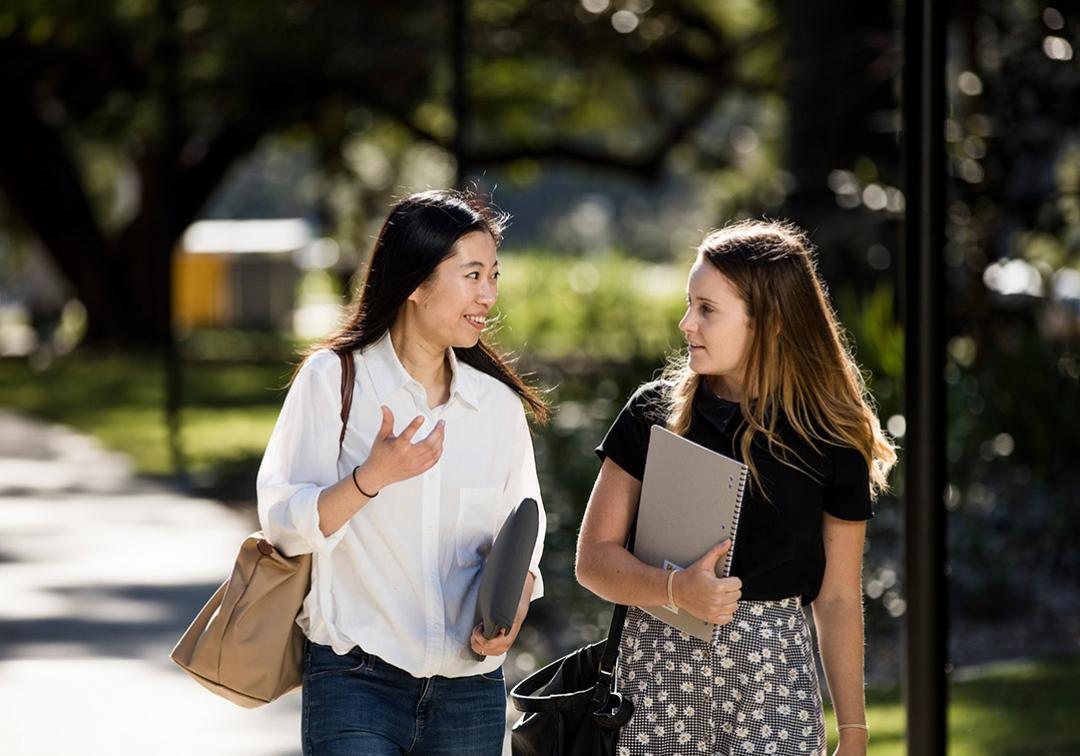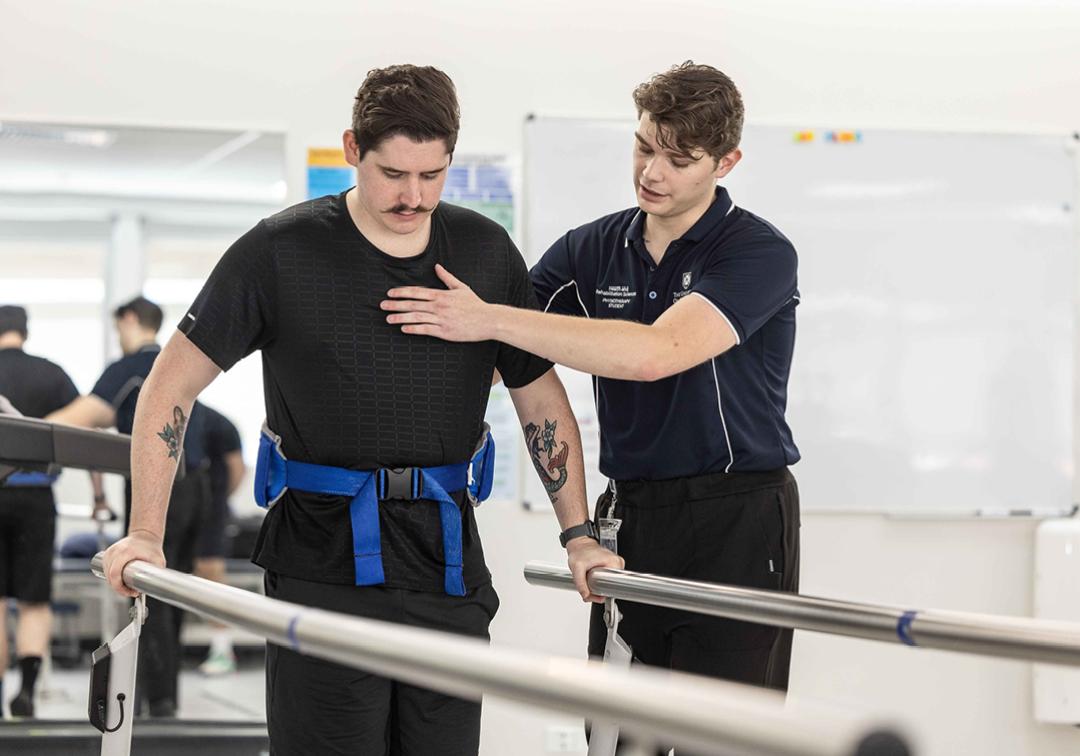
Graduate Certificate in Mediation and Conflict Resolution
Overview
Gain the knowledge and practical skills to deal with conflicts ranging from small individual disagreements to large scale, international and multi-party disputes.
The Graduate Certificate in Mediation and Conflict Resolution program will see you undertake detailed studies in conflict resolution, including training in practical skills and a range of key conflict resolution processes, such as dialogue and mediation.
You'll draw on current practices as you learn to deal with everything from small individual disputes to large-scale, international and multi-party conflicts. You can choose from courses such as Mediation, Conflict Resolution, The Politics and Power of Nonviolence, Peace-building, and Gender, Peace and Security in Global and Local Perspective.
The multidisciplinary nature of conflict resolution is reflected in this half-year full-time (or part-time equivalent) program, which sees students come from disciplines including political science and international studies, law, medicine, business, social science, education and the arts.
As a graduate, you may work directly in the field of conflict resolution, in international peace-building efforts, in private practice as a mediator, or as a mediator or conciliator for a variety of government or private sector organisations.
Program highlights
- Develop your capacity to negotiate, mediate, manage and resolve issues in a wide range of settings.
- Use the program to complete the requirements for national accreditation as a mediator.
- Choose to articulate into UQ’s suite of masters programs in peace and conflict studies or international relations.
How you'll learn
Your learning experiences are designed to best suit the learning outcomes of the courses you choose.
- Research experience
- Workshops
What you'll study
At UQ, degrees are called 'programs' and subjects are called 'courses'. Here's a sample of the courses you could study in this program:
- Conflict Resolution
- Mediation
- Peacebuilding
- The politics and power of nonviolence
- Gender, peace and security in global and local perspective
Career possibilities
Postgraduate study can take you anywhere. Here are some of the careers you could be on your way to:
- Mediator
- Peacekeeping official
- Community support officer
- Crisis management adviser
- Family dispute resolution practitioner
- Complaints and disputes manager
- Chief compliance officer
Events
See all events
12 January - 12 January
Institute of Modern Languages High School Enrichment Program

9 June
Master of Physiotherapy information webinar
Stories
See all stories
Careers
Transform your career with 4 business psychology courses
3-minute read

Uni life
What’s it like to study business psychology as a postgraduate?
5-minute read

UQ people
Chiemeka’s PhD story: cost-effective treatment for brain disorders
4-minute read
Stories
See all stories
Careers
Transform your career with 4 business psychology courses
3-minute read

Uni life
What’s it like to study business psychology as a postgraduate?
5-minute read

UQ people
How a UQ scholarship helped Paul pursue his dream
5-minute read
Entry requirements
Entry requirements
To be eligible for entry, you'll need:
- a bachelor's degree (or equivalent) in any discipline, or
- to have completed post-secondary studies and have 2 years of full-time equivalent relevant work experience (see below). Applications on the basis of post-secondary study and/or work experience will be individually assessed.
- a bachelor's degree (or equivalent) in any discipline, or
- to have completed post-secondary studies and have 2 years of full-time equivalent relevant work experience (see below). Applications on the basis of post-secondary study and/or work experience will be individually assessed.
Relevant work experience
Relevant work experience includes work in:
- planning, research, management, implementation or evaluation of domestic or international peacebuilding, mediation, conflict resolution, transitional justice and cognate efforts to manage conflict or facilitate peace.
Work may be undertaken with community organisations, non-governmental organisations, government agencies, or other cognate organisations.
The work experience should demonstrate computer literacy, research and writing skills, and ability to work collaboratively.
Related programs
Depending on your previous qualifications and current goals, you might want to consider
one of these related programs:
English language requirements
IELTS overall 6.5; reading 6; writing 6; speaking 6; listening 6. For other English Language Proficiency Tests and Scores approved for UQ
TOEFL iBT (including Paper Edition) - Overall 87, listening 19, reading 19, writing 21 and speaking 19.
PTE Academic - Overall Score of 64 and 60 in all sub bands.
BE - A minimum overall grade of 4 plus a minimum grade of C in all macro skills.
CES - Overall 176 and 169 in all sub bands.
OET is not accepted.
There are other ways to meet the English language requirements. For some programs, additional conditions apply.
Student visas
International students who are accepted into full-time study in the Graduate Certificate in Mediation and Conflict Resolution are eligible to apply for an Australian student visa (subclass 500).
There are a number of requirements you must satisfy before a visa is granted, including the Genuine Student (GS) requirement.
Fees and Scholarships
Indicative annual fee
Approximate yearly cost of tuition (8 units). Your fees will vary according to your study load. Fees are reviewed each year and may increase.
$14,720
2025
Approximate yearly cost of tuition (8 units). Your fees will vary according to your study load. Fees are reviewed each year and may increase.
AUD $21,600
2025
Government assistance
Financial aid
As an international student, you might be eligible for financial aid – either from your home country, or from the Australian Government.
FEE-HELP
Domestic students who are accepted into the Graduate Certificate in Mediation and Conflict Resolution pay tuition fees.
FEE-HELP is an Australian Government loan scheme to assist eligible students with the cost of their tuition fees.
Centrelink support
The Australian Government offers a number of income-support payments to eligible Australian university students.
Scholarships
You may be eligible for more than 100 scholarships, including:
How to apply
Applying online
All international applications should be submitted to UQ. If you prefer, you can use an approved UQ agent near you.
The program code for the Graduate Certificate in Mediation and Conflict Resolution is 5454.
Applying online
All domestic applications should be submitted to UQ.
The program code for the Graduate Certificate in Mediation and Conflict Resolution is 5454.
Important dates
The closing date for this program is:
- To commence study in semester 1 - November 30 of the previous year.
Visa processing times vary. Apply and accept your offer as early as you can.
To learn more about UQ dates, including semester start dates, view the Academic Calendar.
Important dates
The closing date for this program is:
- To commence study in Semester 1 - January 31 of the year of commencement.
To learn more about UQ dates, including semester start dates, view the Academic Calendar.
Aboriginal and Torres Strait Islander applicants
For support with applying – or if you have any questions about university life – get in touch with our Aboriginal and Torres Strait Islander Studies (ATSIS) Unit.
Explore other programs
Express yourself. And your interest.
They say choosing a degree is hard, which is why we've made it easy. Register your interest and we'll send you everything you need to know about applying to UQ.


